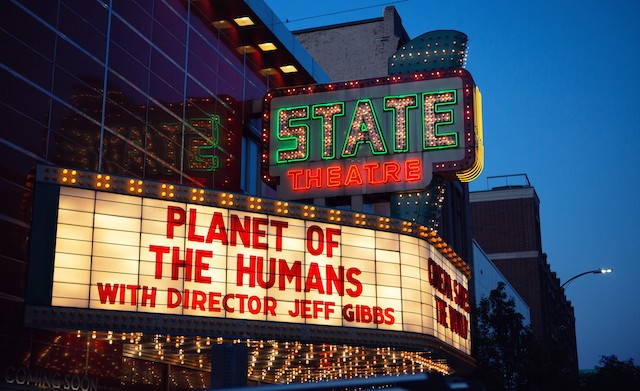
Not too long ago (May 4th) I wrote a posting that pointed out that Michael Moor’s new “documentary”, Planet of the Humans, was seriously flawed. When I write “Seriously Flawed” I mean factually wrong, deceptive and grossly misleading.
Normally I tend to think of Michael Moore as the guy on the right side of the facts and evidence. Unfortunately that is not the case with this one. It might indeed be tempting to consider it to have been an honest mistake, but that also is not the case. Bill McKibben, one of the primary targets within the film, makes it clear within an article he wrote …
When it comes to me, it’s not that Planet of the Humans overstates the case, or gets it partly wrong, or opens an argument worth having: it is a sewer. I’ll finish with just the smallest example: In the credits, it defensively claims that I began opposing biomass only last year, in response to news of this film. In fact, as we wrote the filmmakers on numerous occasions, I’ve been on the record about the topic for years. Here, for instance, is a piece from 2016 with the not very subtle title “Burning Trees for Electricity Is a Bad Idea.” Please read it. When you do, you will see that the filmmakers didn’t just engage in bad journalism (though they surely did), they acted in bad faith. They didn’t just behave dishonestly (though they surely did), they behaved dishonorably. I’m aware that in our current salty era those words may sound mild, but in my lexicon they are the strongest possible epithets.
The movie is indeed confirmation bias incarnate.
When you have a very specific agenda that you have emotionally committed yourself to, then often small little details such as facts will get discarded.
Latest Update: It has been removed from YouTube
The reason for the YouTube takedown is a copyright infringement by the movie.
British environmental photographer, Toby Smith, has very strongly objected to their use of footage from his Rare Earthenware project detailing the journey of rare earth minerals from Inner Mongolia without his permission.
He explains what he did …
“I went directly to YouTube rather than approaching the filmmakers because I wasn’t interested in negotiation. I don’t support the documentary, I don’t agree with its message and I don’t like the misleading use of facts in its narrative.”
Director Jeff Gibbs has responded as follows …
“This attempt to take down our film and prevent the public from seeing it is a blatant act of censorship by political critics of Planet of the Humans. It is a misuse of copyright law to shut down a film that has opened a serious conversation about how parts of the environmental movement have gotten into bed with Wall Street and so-called “green capitalists.” There is absolutely no copyright violation in my film. This is just another attempt by the film’s opponents to subvert the right to free speech.”
OK, let’s take this step by step
Claim: the takedown is censorship
Nope, nobody has banned the film. YouTube got a complaint and responded appropriately. Their policy is clear ..
You should only upload content (including music, videos, and artwork) that you created or that you’re authorized to use; otherwise, this could result in a copyright violation.
If you use someone else’s content on your YouTube channel, the copyright owner can submit a takedown request. If this is a valid request, your video will be removed
Is their usage of his material valid under “Fair Use” terms?
This is a legal doctrine that says you can reuse copyright-protected material under certain circumstances without getting permission from the copyright owner. So what exactly are those circumstances?
There are basically 4 factors involved.
- The purpose and character of the use
- Courts typically focus on whether the use is “transformative.”. Commercial ventures tend not to win using this argument
- The nature of the copyrighted work
- The amount and substantiality of the portion used in relation to the copyrighted work as a whole
- The effect of the use upon the potential market for, or value of, the copyrighted work
To be honest I don’t know which way this one will go.
Claim: subvert the right to free speech
Er … no, this is not a Free Speech issue. The “Free Speech” card does not trump copyright law.
One Last thought
If you are going to make a documentary filled with factually incorrect information to attack renewable energy, then it is probably not a great idea to use material that is owned and copyrighted by a passionate environmentalist.